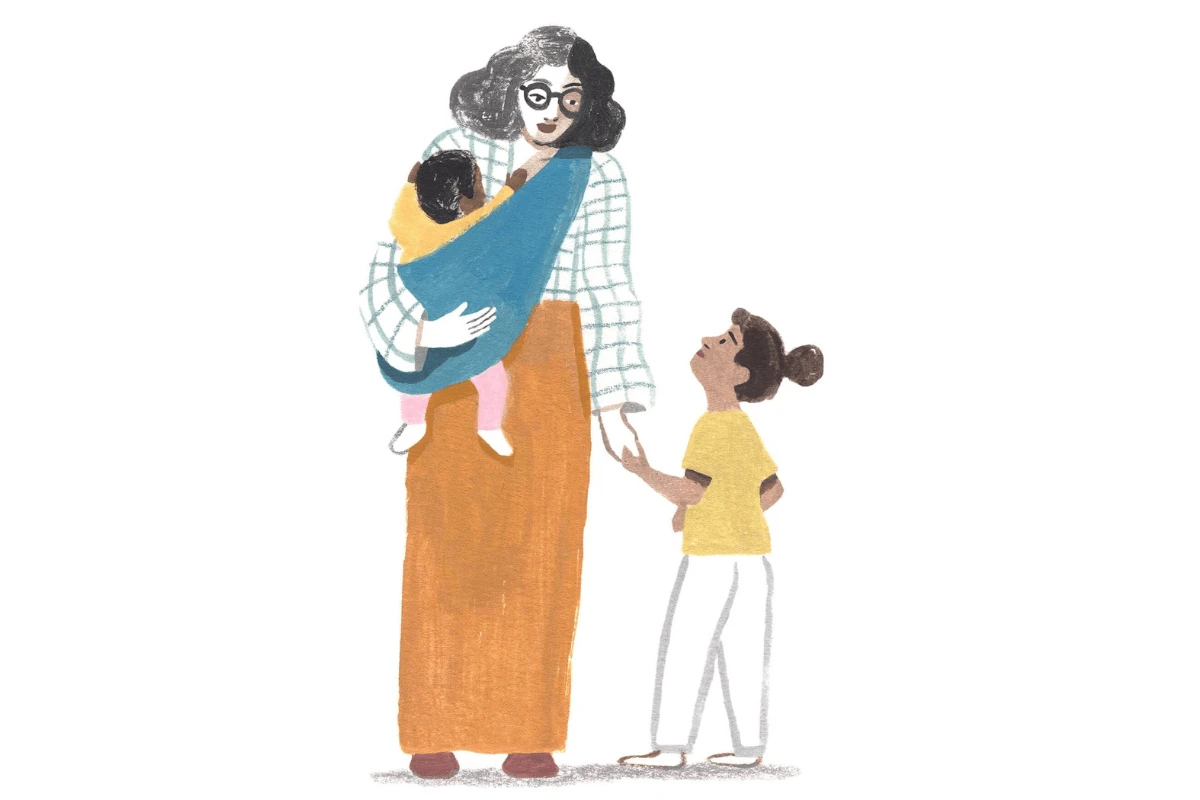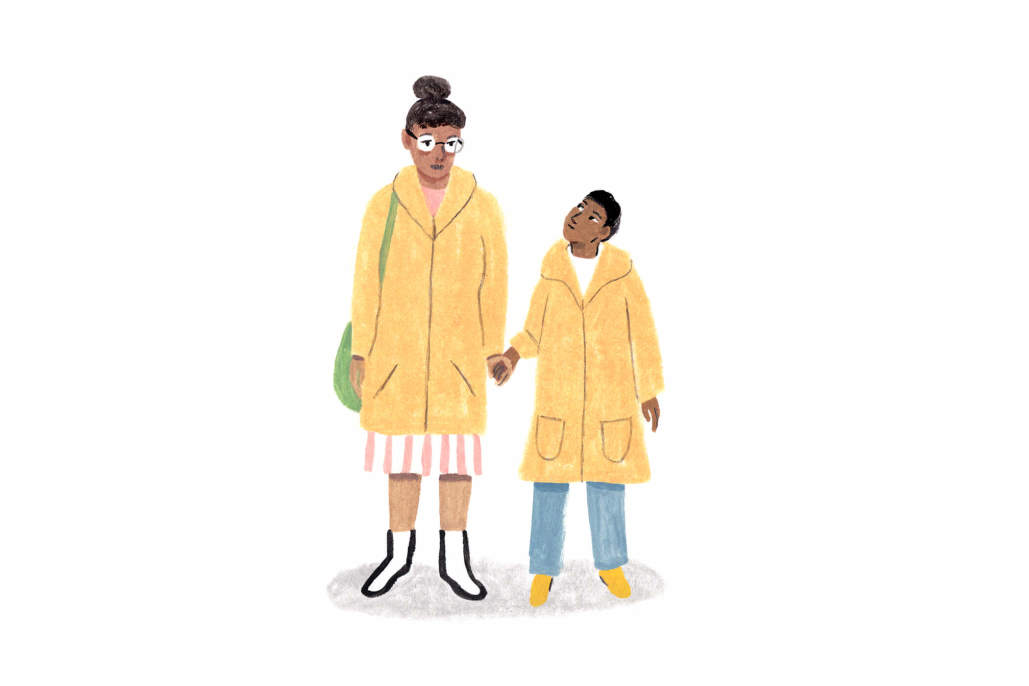Wondering how to parent a child with ADHD—attention deficit hyperactivity disorder? It's a serious concern—particularly for those parents who have adult ADHD themselves.
Let's be real. Parenting is hard enough.
And parenting ADHD kids is both extra arduous and extra exhilarating.
Add to this one or both parents diagnosed with adult ADHD, as well, and well...you're looking at a completely next-level ambitious and extraordinary adventure.
Parenting children with ADHD can be overwhelming. And what if you have ADHD
Since more American kids and adults have ADHD than ever before, we wanted to let you know—we see you!
We also hear all the parents asking about how to help a child with ADHD and for ADHD parent support.
So, we figured it'd be helpful to check in with a Monarch Directory and SimplePractice therapist who specializes in working with clients facing the challenges of parenting with ADHD.
Advice from a therapist who specializes in ADHD parents
Meet therapist Jen Atherton, LPCC, a mom to two children with ADHD.
Atherton understands what it's like to grow up with ADHD herself, because she was diagnosed with the disorder when she was a child.
Today, she's a licensed therapist who also counsels parents in managing their own ADHD while parenting ADHD children.
The Monarch Directory by SimplePractice makes it easy to find therapists who specialize in ADHD as well as counselors experienced with cognitive behavioral therapy (CBT), one of the most successful therapeutic treatment approaches for adult ADHD.

According to Atherton, parenting children with ADHD can feel overwhelming.
There may be many clashes and conflicts in the household, because emotional dysregulation and low frustration tolerance are ADHD symptoms among both children and adults with ADHD.
“You’re trying to manage your own constellation of symptoms and behaviors and reactions in the context of being the parent, the leader," she says. "And you're trying to also be a good model for your kids."
But, Atherton acknowledges—your kids are developing and growing too—and they have changing needs.
Consequently, she points out, there may be many clashes and conflicts in the household, because emotional dysregulation and low frustration tolerance are ADHD symptoms among both children and adults with ADHD.
We'll share more helpful guidance from Atherton below, including answers to:
Is ADHD genetic and does it run in families? How to discipline a teen or child who has ADHD?
But first, how many American kids and parents have ADHD?
More parents face this situation than you might think.
In fact, 2015 research suggests approximately half of parents of ADHD kids have adult ADHD themselves. Check out seven surprising symptoms of adult ADHD.
For adults, the National Institute of Mental Health (NIMH) puts the overall prevalence of ADHD at 5% among men, and 3% among women.
However, experts now believe the true number of adult women with ADHD is actually much higher.
We're looking at you, moms.
More parents face this situation than you might think.
Not completely sure if you have ADHD? Take our 3-Minute Adult ADHD Test to find out whether you may have undiagnosed ADHD. In U.S. children ages 4-7, the 2012 National Survey of Children’s Health showed the prevalence diagnosed with ADHD increased by 42% between 2003 and 2011.
As of 2011, according to the CDC’s National Survey of Children’s Health, more than one out of every ten U.S. children have been diagnosed with ADHD.
When we account for both children and adults diagnosed with ADHD, nearly 30 million Americans are living with ADHD (Nearly 9% of the total U.S. population).
That's a lot of us!
To help address the needs of this growing group of Americans, the Monarch Editors sat down with Atherton to find out her advice for raising children with ADHD and how she manages parenting kids with ADHD when she has adult ADHD herself.

Is ADHD genetic?
“Scientists have not determined the specific gene or set of genes that encapsulates the risk or predisposition for developing ADHD,” says Atherton,
“But it’s pretty well known that it does show up in multiple generations within families,” she says.
Parents who have been diagnosed with ADHD may be more likely to be on the lookout for signs of ADHD in their children.
Whereas moms and dads who don’t have ADHD themselves—or who have never been diagnosed—might be not know how to recognize the signs and symptoms, particularly in girls and moms where ADHD can look different.
ADHD can often go undiagnosed in adults.
This means many parents may not even know they have ADHD.
What's more, if they do find out and get diagnosed with ADHD as adults, they may feel that if they were able to deal with their ADHD behavior throughout life without help and support, their children should be able to do the same.
ADHD can often go undiagnosed in adults. This means some parents may not even know they have ADHD.
“Resistance comes from the idea that ADHD is overdiagnosed—that doctors just want to throw meds at kids,” Atherton says.
Undiagnosed or neurotypical (i.e. non-ADHD) parents might also subscribe to the notion that ADHD is "just kids being kids," and they may think "I didn’t need help or medicine when I was a kid."
But perhaps these adults who were undiagnosed until later in life actually did need, and would have benefitted from, extra help and support managing life and school with their ADHD symptoms, and they simply never received it.
They learned to cope, perhaps. But wouldn't it have felt better to get help and understanding along the way?
Perhaps these adults who were undiagnosed until later in life actually did need, and would have benefitted from, extra help and support managing life and school with their ADHD symptoms.
When it comes to raising kids in general, there’s no such thing as too much support for parents.
And, this is especially true if you’re managing your own adult ADHD alongside your child’s ADD symptoms.
“I would say be proactive as a parent and get an ADHD assessment for your child if it's suspected or if there's a family pattern of ADHD-like symptoms and behaviors," says Atherton.
"You want to catch it and get it diagnosed as soon as you can, so that your kid has support available sooner rather than later,” she explains.
You know, that same support you might not have had as a kid.

Does ADHD affect parenting?
Of course! Attention disorders affect many aspects of a person’s life.
Parents with ADHD often have trouble with organization, especially.
Atherton admits organizing a schedule has been a challenge for her—as it involves not only her own calendar, but also her children's calendar and her partner's calendar.
“Sometimes it was hard to manage my own system prior to having kids,” she says, “And then you add developing brains with ADHD, and another adult human's needs...”
Parents with ADHD often have trouble with organization.
You can probably relate to how overwhelming this can get.
That said, parenting with adult ADHD also means you'll have positive impacts and superpowers. Plus, your ADHD kids who can benefit and learn from your life experience.
“There are certainly times where it is a feedback loop—where I’m feeling more emotionally escalated, and my kids are too, and it feeds into a frenzy,” says Atherton.
“But there are also times when, if I didn’t have ADHD, I would have a hard time understanding where they’re coming from and a hard time advocating for them,” she says.
Parenting with adult ADHD also means you'll have positive impacts and superpowers. Plus, your ADHD kids who can benefit and learn from your life experience.
Parents who have had to learn to cope with their own ADHD symptoms are better equipped with the life experience of living with the disorder to model ADHD coping and survival skills for their children.
“Skills I had to learn later in life," says Atherton, "my children may get exposed to them earlier because of my life experience."
“If ADHD isn’t assessed and treated as early as possible, there’s a higher prevalence of academic issues and career issues."
Earlier development of ADHD coping skills can help kids tremendously.
“If ADHD isn’t assessed and treated as early as possible, there’s a higher prevalence of academic issues, career issues, and those are seen and felt as failures for the person with ADHD,” explains Atherton.
“We want kids to grow up with healthy self-esteem and a belief that they are capable,” she says.
Do kids grow out of ADHD?
Some people mistakenly believe ADHD is a disorder of childhood and that its symptoms are temporary and children can grow out of ADHD.
"In the past what experts believed to be ‘children growing out of ADHD’ was actually just kids developing coping skills."
In reality, most of what looks like “growing out” of ADHD is actually not about age at all, but rather life experience.
“I think that in the past what experts believed to be ‘children growing out of ADHD’ was actually just kids developing coping skills,” says Atherton.
“My eight-year-old who has ADHD has a hard time sitting still because his brain is still developing, and he’s going to lag a little bit with impulse control," she says.
"He doesn’t have the skills yet to manage that—but give him ten years.”
How do you discipline a child with ADHD?
Of course, kids with ADHD are still kids.
And sometimes kids misbehave.
According to Atherton, a key element of disciplining a child with ADHD is understanding when they’re acting out for the sake of acting out, and when that behavior might be rooted in the disorder.
“There are times as parents, when we have to be tuned in enough to recognize those moments when they’re not behaving badly on purpose," she says.
"And we need to try to recognize that there’s a message or symptom of the disorder behind the behavior.”
A key element of disciplining a child with ADHD is understanding when they’re acting out for the sake of acting out, and when that behavior might be rooted in the disorder.
Parents who have ADHD themselves may be more able to recognize these differences and ADHD symptoms than neurotypical parents.
For example, if you yourself are sensitive to overstimulation, you might recognize when something that looks like a run-of-the-mill tantrum is actually your child'd reaction to their overloaded nervous system.
And—just as is true with neurotypical children—bad behavior can often result in its own natural punishment.
“Some kids can learn from the natural consequences of their unfortunate behavior if you help guide them in this direction,” Atherton notes.
“Talking with kids about the circumstances, their actions, and the natural consequences that resulted from their behavior, as well as how they might manage more effectively in the future, is the best approach," she says, "instead of thinking, ‘OK, what punishment can I dole out?’”

Tips for parenting with ADHD
If there’s just one thing a parent with ADHD should do, according to Atherton, it’s get help and support for themselves, as well as help and support for their children.
“Parenting with ADHD is so much harder," she says. "So any help you can get as an adult, even if you’ve managed thus far, is going to benefit you and your kids.”
Parents with ADHD shouldn’t be shy about seeking help and support.
The Monarch Directory makes it easy to find mental health professionals who specialize in diagnosing and treating ADHD.

You can also browse therapists experienced with cognitive behavioral therapy (CBT), one of the most successful therapeutic treatment approaches for ADHD.
Atherton's other ADHD parenting tips include
Accept that you’re not perfect—and neither are your kids. This means having realistic expectations. Some days it’s just not going to work out, and that’s OK.
Understand your children’s symptoms and how they may differ from your own, and understand the dynamic between you and your child.
Work on managing your own ADHD. If you communicate your experiences to your children, and model certain behaviors, your kids will have something of a playbook.
Be flexible.
So how do you parent a child with ADHD when you have ADHD yourself?
The short answer? With empathy and flexibility.
The longer answer involves a lot of record keeping, patience, and communication.
Atherton reiterates that parents with ADHD shouldn’t be shy about seeking help and support.
“If you have ADHD in your family, I wouldn’t wait for problems to happen,” she says.
Remember to enjoy the adventure of parenting a child with ADHD!
According to Atherton, catching ADHD early and helping kids get the resources they need to thrive will give them coping tools early on and help them develop good self-esteem too.
And remember to enjoy the adventure of parenting a child with ADHD!
“There are times when it’s super fun to have ADHD and to have ADHD kids," Atherton points out. "You can be spontaneous and weird and silly and creative, and they’ll jump right in.”
In-person and online therapy can help with ADHD support
Monarch makes it easy to browse mental health professionals who specialize in ADHD, as well as therapists experienced with cognitive behavioral therapy (CBT), one of the most successful therapeutic treatment approaches for ADHD.

You can find licensed therapists nationwide and choose to locate therapists and counselors who accept your insurance. We offer transparency about the cost of therapy.
When you view an individual provider’s page, directly below their areas of specialty, you’ll see their fees per session and which insurance providers they accept.
Many therapists listed on Monarch also allow you to book free 15-minute initial consultation appointments.
Find out if you have ADHD
Take our 3-Minute Adult ADHD Test to see if you could benefit from talking with your doctor, therapist, or psychologist about diagnosis and treatment.
Find a therapist who specializes in diagnosing and treating ADHD, many with online availability and free initial 15-minute consultations.
Parent quiz: Child mental health checklist
Try this online children’s mental health quiz if you're concerned your child is experiencing emotional, attentional, or behavioral difficulties.
READ NEXT: Is Screen Time Bad for Kids and Teens? And How Do You Set Limits?
Need to find a therapist who specializes in ADHD? Check out the Monarch Directory by SimplePractice to find therapists near you who specialize in treating patients with ADHD. Many of the counselors and therapists take insurance.
Bryant, A. M., Lee, E., Howell, A., Morgan, B., Cook, C. M., Patel, K., & Suhr, J. A. (2017). The vulnerability of self-reported disability measures to malingering: A simulated ADHD study. The Clinical Neuropsychologist, 32(1), 109–118. https://doi.org/10.1080/13854046.2017.1346145
Schlarb, A., Starck, M., & Grünwald, J. (2016). Occurrence of ADHD in parents of ADHD children in a clinical sample. Neuropsychiatric Disease and Treatment, 581. https://doi.org/10.2147/ndt.s100238


